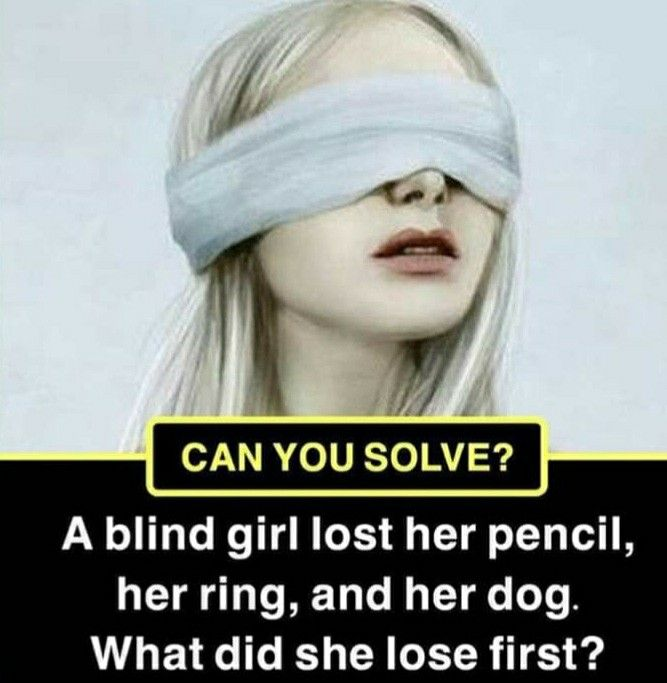Some puzzles are about numbers. Some are about observation. And then there are riddles like this—cleverly written, designed to trick your logic, and force you to think beyond the obvious.
Take a close look at this challenge:
“A blind girl lost her pencil, her ring, and her dog. What did she lose first?”
Simple, right? Just pick an object from the list. But wait—what if the answer has nothing to do with those objects at all? That’s where this riddle flips your expectations and tests your true reasoning skills.
So before you scroll down, think carefully: What did she lose first?
Common Mistakes People Make With This Riddle
 Most people rush to answer the question based solely on the sequence of items listed.
Most people rush to answer the question based solely on the sequence of items listed.
- Some say “pencil” because it’s mentioned first.
- Others pick “dog”, assuming a blind person relies on a guide dog and losing it would be the most tragic.
- A few might guess “ring” due to emotional or symbolic value.
But here’s the trap: the riddle isn’t asking which item she lost first chronologically—it’s asking what she truly lost first, meaning what made all the other losses possible.
This is where many fall into the surface-level thinking trap.
Step-by-Step Breakdown of the Puzzle
Let’s dissect the riddle with logic and attention to detail:
Step 1: Look Beyond the List
The items she lost—pencil, ring, and dog—are distractions. They’re there to steer your mind into picking one of them. But remember, riddles like this are crafted with intentional misdirection.
The real clue is hidden in the first part of the sentence:
“A blind girl…”
Step 2: Analyze the Premise
If the girl is already blind, it means she lost her sight at some point before the other items.
She couldn’t have become blind after losing her dog—because she’s already described as blind when she loses it.
So logically, what’s the very first thing she ever lost?
Step 3: The Answer is in the Identity
The answer is: Her vision.
She’s a blind girl. That tells us her vision is already gone before the narrative of losing the pencil, ring, or dog even begins. So her first loss wasn’t an object—it was her ability to see.
That’s the beauty of the riddle: it forces you to step outside the list and evaluate the person, not just the items.


